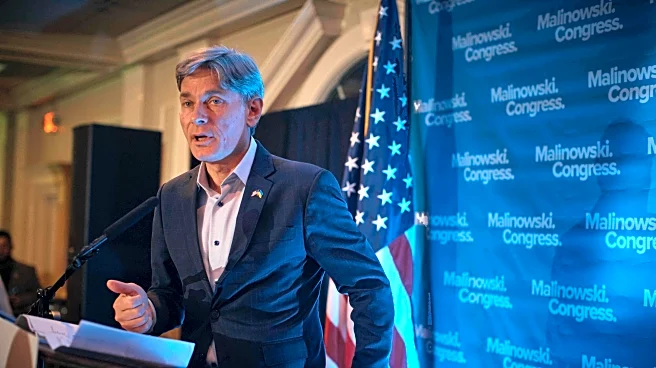What's Happening?
A recent study conducted by Yunhao Zhang from the University of California, Berkeley, and David Rand from MIT investigates the phenomenon of self-deception as a form of self-persuasion. The research suggests
that individuals can change their beliefs simply by being exposed to arguments contrary to their initial positions. This process is linked to cognitive dissonance, where individuals adjust their beliefs to align with their actions, even if those beliefs were not originally held. The study involved over 4,000 participants in online experiments, where they were asked to rate their belief in various policy statements and then provide arguments for or against those positions. The findings indicate that exposure to opposing views can lead to a shift in beliefs without any conscious effort to persuade oneself.
Why It's Important?
The study's findings have significant implications for understanding how individuals form and change their beliefs. This research highlights the ease with which people can adopt new positions, potentially impacting public opinion and decision-making processes. In the context of U.S. politics and society, this could influence how individuals respond to political campaigns, media narratives, and social movements. The ability to change beliefs without conscious persuasion suggests that exposure to diverse viewpoints can play a crucial role in shaping public discourse. This understanding can be leveraged by policymakers, educators, and media professionals to foster more informed and balanced discussions on critical issues.
What's Next?
The study opens avenues for further research into the mechanisms of self-deception and cognitive dissonance. Future studies could explore how these processes affect long-term belief systems and decision-making in various contexts, such as political affiliations, consumer behavior, and social interactions. Additionally, stakeholders in education and media might consider strategies to encourage critical thinking and awareness of cognitive biases, helping individuals to maintain consistent and informed beliefs. As society becomes increasingly polarized, understanding these psychological processes could aid in bridging divides and promoting constructive dialogue.
Beyond the Headlines
The implications of this study extend beyond immediate belief changes, touching on ethical considerations in communication and persuasion. The ease of self-deception raises questions about the responsibility of media and educators in presenting information. It also highlights the potential for manipulation in political and marketing strategies, where exposure to selective information can lead to unintended belief shifts. Understanding these dynamics is crucial for developing ethical standards in information dissemination and fostering a culture of transparency and accountability.











